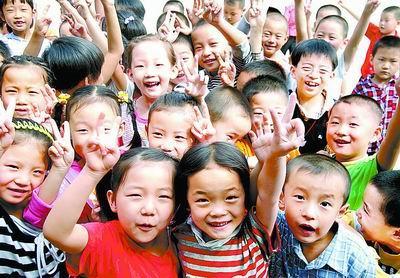
By 2030, married couples in Guangdong will be allowed to have two children, according to a top provincial population control official last week.
Zhang Feng, director of the Guangdong Provincial Population and Family Planning Commission, said the province will relax the one-child policy, which has been in place for more than 30 years, just years before the country's population is expected to reach its peak of 1.65 billion in 2033.
"China's population will begin to fall in 23 years," Zhang said in an interview with the Guangzhou-based Southern Metropolis Daily last week. "Guangdong will gradually allow qualified couples, with either the husband or wife being the only child, to have a second child after 2020. And all couples in the province will be allowed to have a second child starting 2030," said Zhang who added that move is aimed at helping tackle the burden of an aging population.
Last year, Guangdong was home to more than 10 million people older than 60, accounting for 10 percent of the province's total population. Guangdong's elderly population is now growing at 3.5 percent annually. In Guangzhou, the provincial capital, the number of elderly has past 1 million, accounting for almost 13 percent of the city's population.
About 900,000 babies were born in Guangdong in the first eight months of this year, with the total set to exceed 1.2 million by the end of this year, according to statistics from the population and family planning commission. With more than 100 million residents, Guangdong is one of China's most populous provinces.
While the new policy will allow couples to have a second child, not everyone wants a bigger family.
Chang Weifang, a 25-year-old Guangzhou resident who tied the knot early this year, said she will not have a second child due to economic factors. "I don't think I can afford a second baby, said Chang. The housing prices are very high in Guangzhou. My husband and I spend most of our incomes on the mortgage," added Chang, who works in a logistics company. Her husband is a government official.
"One child is enough, no matter whether the baby is a boy or a girl," Chang said.




